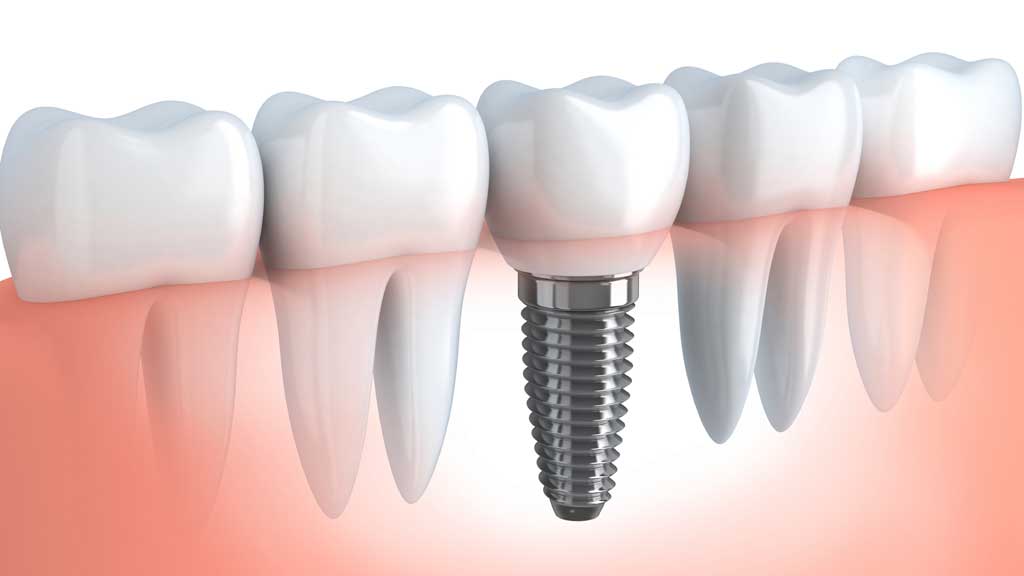Dental Implants
Restoring confidence and functionality with lasting and permanent tooth replacement
What is a Dental Implant?
Are you missing one or more teeth? A dental implant is an ideal solution for permanent and comfortable tooth replacement. These implants serve as biocompatible posts the take the place of natural tooth roots. The firm foundation creates a lasting, comfortable and customized artificial tooth that will be indistinguishable from your natural teeth.
What Steps Should I Expect From a Dental Implant?
A wide range of factors effect dental implant procedures and recovery, including the amount of work done and the type of treatment. However, you can rest easy knowing that after the initial surgical procedure, any discomfort should be minimal. There may be some swelling in the gums and face as the new tooth heals. Once a dental implant is installed, don’t neglect your teeth! Diligent oral hygiene is critical for proper fusing of the implant to take effect.
Missing tooth roots are replaced with implants, which are then covered by the gum line.
A healing period of up to six months allows the implants to take.
The implants are uncovered and extensions are attached.
Replacement teeth are affixed to the implants and extensions.
Available Dental Implant Options
Currently, there are several types of implants available, including:
- Full upper (Involves the upper set of teeth being replaced with dental implants)
- Full lower (Involves the lower set of teeth being replaced with dental implants)
- Anterior (Implants that replace the front teeth, also known as incisors and cuspids)
- Posterior (Implants that replace the back teeth, also known as bicuspids and molars)
- Single-tooth

Why Implants are a Good Solution
Dental implants have offered patients an alternative to replacing missing teeth. In the past, the only option was dentures. Now, with modern technology, implants offer an excellent option to mimic the look and feel of natural teeth. These synthetic teeth are composed of a titanium alloy and anchored to the jawbone. This creates the foundation for the artificial teeth or permanent bridge.
Dental implants aren’t just for patients who have lost teeth due to old age. Implants are often necessary after an injury or accident. However, it’s important to note that not everyone is suitable for dental implants. The success of an implant depends on bone density, immune system, and good oral hygiene. Those that are compatible can expect high success rates with the procedure.
As a more comprehensive procedure, implants often require multiple visits. During the first visit, an anchor is placed into the jawbone. The site is then allowed to heal for several weeks or months. This gives the tissue time to grow around the anchor in an effort to more firmly hold the denture structure in place. During a follow-up visit, an artificial, natural-looking tooth is then fitted over the implanted anchor.

